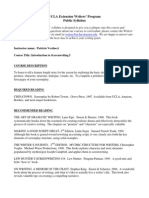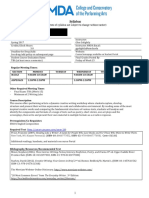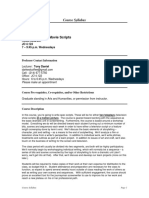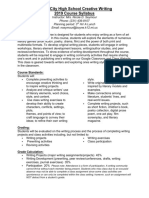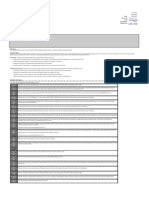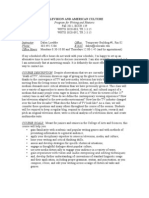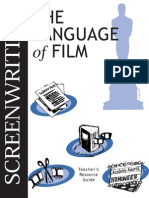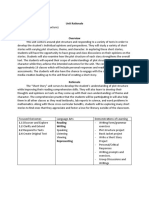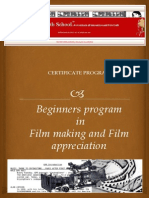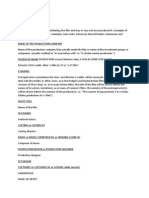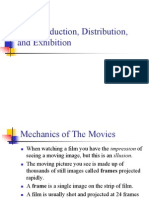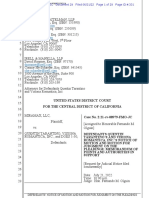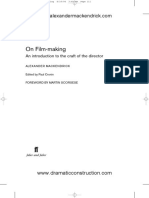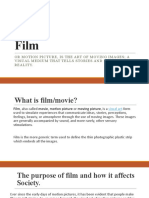0% found this document useful (0 votes)
380 views11 pagesScreenwriting Course Syllabus
This document is a revised syllabus for a screenwriting course titled "Story for Film and TV" taught by Joseph Kuhr. The course objective is to develop students' creative writing skills for writing scripts for movies and television. Students will complete writing assignments like character sketches, action scripts without dialogue, and full scene scripts. They will also write a spec TV script and web series bible. The syllabus outlines the grading criteria and schedule of assignments. Students are expected to attend class and workshops, meet deadlines, and write scripts in proper screenplay format.
Uploaded by
scarabouCopyright
© © All Rights Reserved
We take content rights seriously. If you suspect this is your content, claim it here.
Available Formats
Download as PDF, TXT or read online on Scribd
0% found this document useful (0 votes)
380 views11 pagesScreenwriting Course Syllabus
This document is a revised syllabus for a screenwriting course titled "Story for Film and TV" taught by Joseph Kuhr. The course objective is to develop students' creative writing skills for writing scripts for movies and television. Students will complete writing assignments like character sketches, action scripts without dialogue, and full scene scripts. They will also write a spec TV script and web series bible. The syllabus outlines the grading criteria and schedule of assignments. Students are expected to attend class and workshops, meet deadlines, and write scripts in proper screenplay format.
Uploaded by
scarabouCopyright
© © All Rights Reserved
We take content rights seriously. If you suspect this is your content, claim it here.
Available Formats
Download as PDF, TXT or read online on Scribd
/ 11




